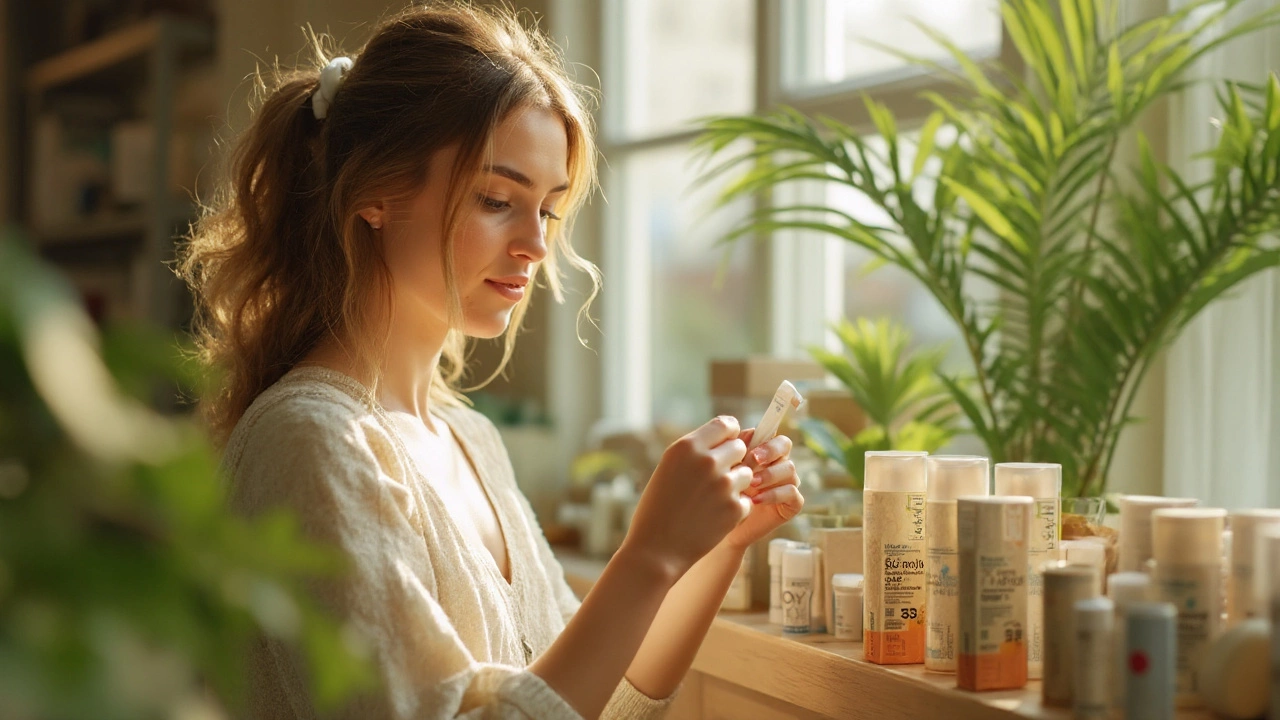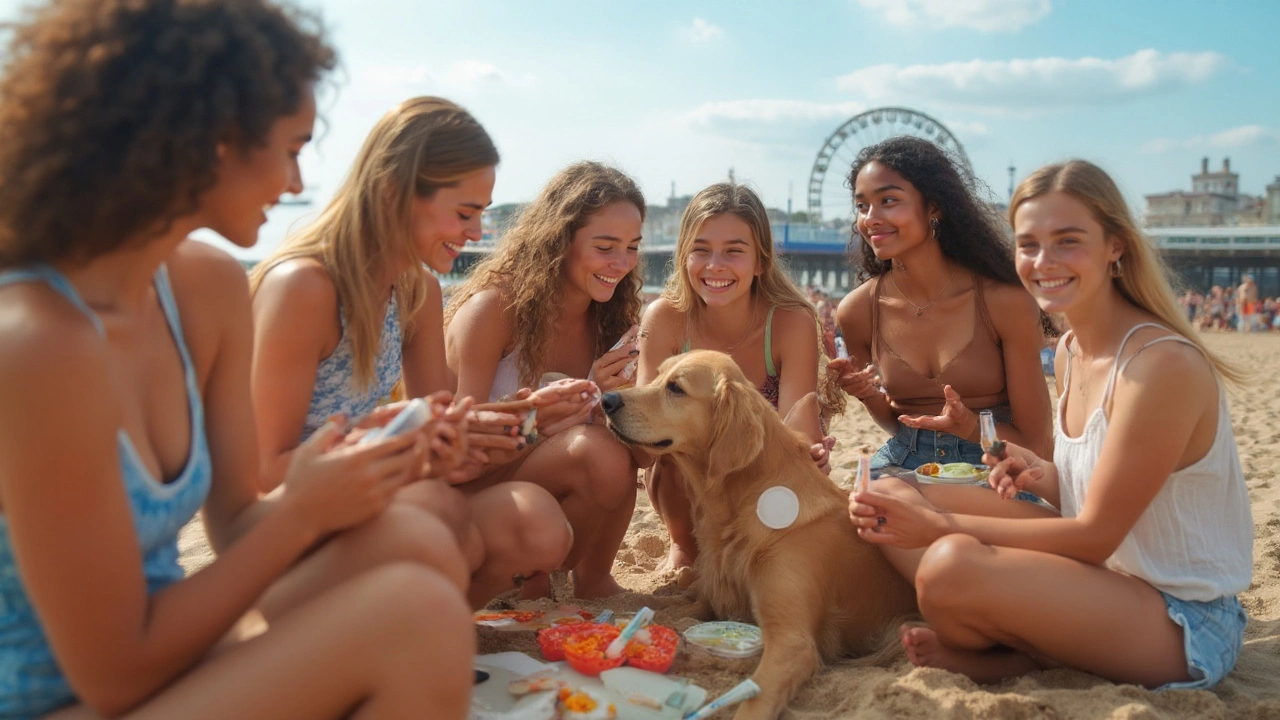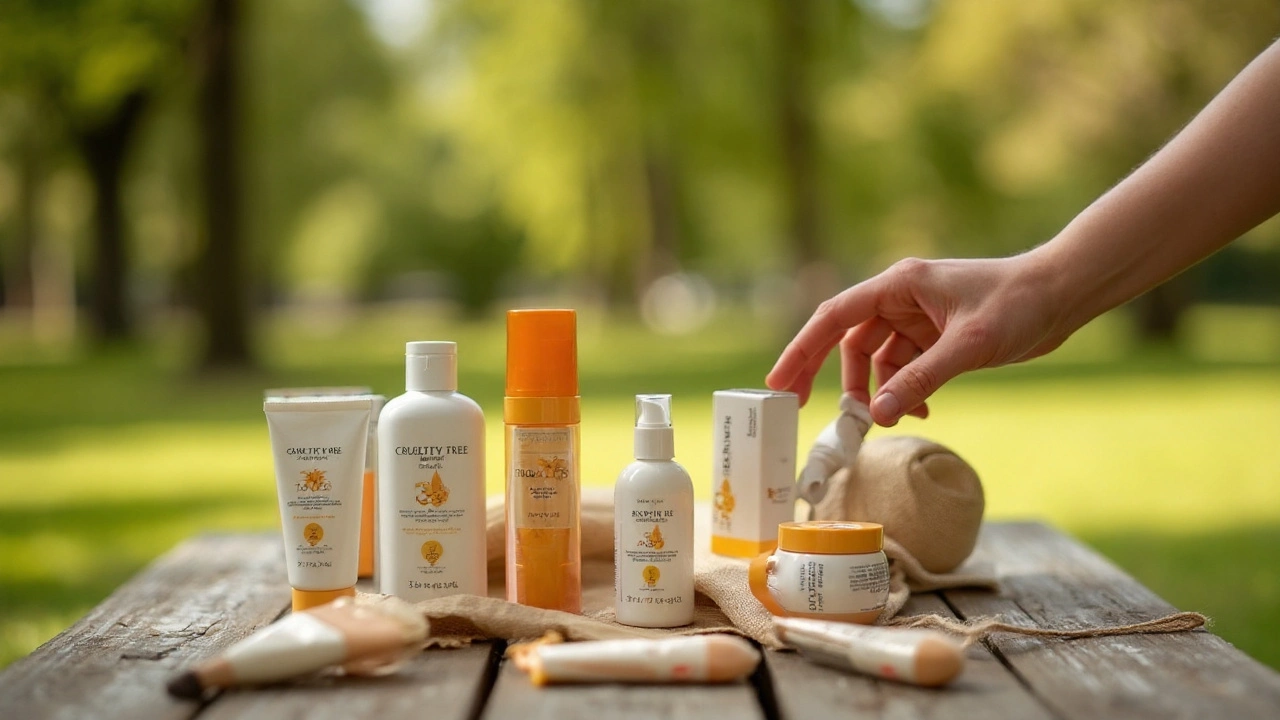Is Sun Bum Really Cruelty-Free? Honest Facts and Truths in 2025
 Aug, 3 2025
Aug, 3 2025
Next time you grab that bright yellow sunscreen bottle, you might be asking yourself something simple but hard to answer: is Sun Bum really cruelty-free, or is that just a clever label for guilt-free shopping? The answer isn’t just a yes or no, and what you’ll uncover might surprise you.
Breaking Down "Cruelty-Free": What Does it Actually Mean?
People toss around the words "cruelty-free" like sunscreen at the beach, but there’s a lot of confusion about what it really means. So, let’s make it crystal clear. When a brand claims to be cruelty-free, it says it doesn’t test its products on animals, doesn’t use ingredients tested on animals, or farm out animal testing to someone else. But here’s the kicker: there’s no single, globally recognized legal definition for "cruelty-free." That means brands can slap on a bunny logo, and you have to do some homework to know if that really stands for something.
This is where independent certifications come into play. The big names are Leaping Bunny and PETA’s Beauty Without Bunnies. If you see those, it usually means third-party folks have double-checked the brand’s claims. But even then, brands can sometimes fudge the details, like selling in countries where animal testing is still required by law. China, for example, used to require animal testing for many types of cosmetics sold there, though they’ve relaxed some rules recently—but it’s still a grey area.
Here’s a tip: check not just if a product is labeled cruelty-free, but look to see if the whole company is certified—not just one sunscreen in the lineup. Companies sometimes make a couple of cruelty-free products to win over customers while the rest of their line tells a different story. And don’t forget about parent companies; some beloved "cruelty-free" brands are owned by giants with totally different testing standards.
For a quick glance at what matters, here’s what to look for in cruelty-free brands:
- Reports or certifications from Leaping Bunny, PETA, or Choose Cruelty Free
- Transparency about ingredient sourcing
- No sales of products in countries with mandatory animal testing, unless they have a clear exemption strategy
- A proven track record of upholding cruelty-free commitments, not just a recent change in policy
And yes, animal testing does still happen. According to the Humane Society International in 2024, over 115 million animals are estimated to be used in laboratory testing each year worldwide. That’s a huge number, and it pushes more people to ask tough questions about their go-to products.

Sun Bum’s Animal Testing Policy and Certifications
So, let’s get right into it—does Sun Bum test on animals? The official Sun Bum website and their statements as of mid-2025 say they do not test finished products or ingredients on animals. They specifically state that none of their products are ever tested on animals by them, their suppliers, or third parties. That sounds good, but there’s more to the story.
Sun Bum is not officially certified cruelty-free by Leaping Bunny or PETA as of August 2025. This doesn’t automatically mean their claims are false, but there’s less outside oversight. The company does appear on several independent cruelty-free brand lists—like Cruelty-Free Kitty and Ethical Elephant—based on their communications and policy clarity. Still, skeptical shoppers often want stronger proof than a self-stated policy.
Another key factor is where Sun Bum sells its products. In 2025, Sun Bum does not sell in mainland China, which would normally require animal testing for imported, non-special-use cosmetics. They’ve openly committed to avoiding markets where animal testing might be required by law. That’s a good sign for the animal-loving crowd. But parent companies matter too. Sun Bum remains independently operated as a division of SC Johnson, a huge industry name. SC Johnson doesn’t have a stellar reputation when it comes to animal testing; they still sell products in countries where it’s required. However, Sun Bum maintains separate policies and, so far, stands by its own cruelty-free claims.
If you want the nitty-gritty, here’s a quick table summarizing Sun Bum’s current stance and facts:
| Aspect | Sun Bum Policy |
|---|---|
| Animal Testing by Company | No |
| Animal Testing by Suppliers | No |
| Third-Party Testing | No |
| Parent Company | SC Johnson |
| Certified by Leaping Bunny? | No |
| Certified by PETA? | No |
| Sells in Mainland China? | No |
| Vegan Options? | Some, but not all |
That last row is important too—the vegan thing. Some Sun Bum products are vegan, but not all. Their Classic Sunscreen line is vegan, but watch out for their tinted balms and haircare, which may contain beeswax or other animal-derived ingredients. Always check the ingredients if vegan is a must for you.
So, if you’re hoping for a clear-cut answer—Sun Bum does appear to be cruelty-free for now but doesn’t have the highest level of independent certification. If that independent stamp of approval is a must for you (and for plenty of us, it is), you might want to look elsewhere until they get certified. If you’re okay with their policy and the parent company situation, you might feel comfortable using them.

How Sun Bum Compares to Other Cruelty-Free Sunscreen Brands
Sun Bum isn’t the only sunscreen brand in the conversation, and if you’re looking for cruelty-free SPF, you actually have more options than ever. Brands like Supergoop!, Coola, and Bare Republic have earned Leaping Bunny or PETA certifications, and they proudly display those logos. Mineral sunscreens, which use ingredients like zinc oxide and titanium dioxide, are trending for being safer for sensitive skin and coral reefs, but their cruelty-free status depends on each company’s policy.
Here’s a quick recap table showing how Sun Bum stacks up against some competitors in cruelty-free sunscreen:
| Brand | Cruelty-Free Certified | Vegan Options | Parent Company Status |
|---|---|---|---|
| Sun Bum | No | Some | Owned by SC Johnson |
| Supergoop! | Yes (Leaping Bunny) | Many | Privately Owned |
| Coola | Yes (PETA) | Many | Privately Owned |
| Bare Republic | Yes (PETA) | Most | Part of PDC Brands |
There's no denying Sun Bum is popular for a reason—their sunscreens smell amazing, don’t leave you looking like a ghost, and have a tropical vibe that screams summer. But if cruelty-free status is high on your checklist, you’ll want to shop strategically. Look for the words "certified cruelty-free" next to recognizable bunny logos. And if you’re on the fence about Sun Bum, asking the company directly is fair game—they respond to DMs and emails and usually share policy updates. Brands listen when you push.
Another tip: Don’t forget about store brands. Target’s Up & Up SPF line and Whole Foods’ 365 Everyday Value sunscreen have made cruelty-free pledges in recent years and cost less than most name brands. Drugstore brands like Alba Botanica, which is certified by Leaping Bunny, are great for budget-friendly options.
If you have sensitive skin, mineral (a.k.a. physical) sunscreens are still your best friend. Look for zinc oxide or titanium dioxide as main ingredients. Just be sure to see the cruelty-free certification before dropping it into your beach bag.
Worried about effectiveness? Cruelty-free brands test their SPF the same rigorous, lab-based ways—just without animal subjects. The U.S. Food and Drug Administration (FDA) sets safety and efficacy standards that all sunscreens must meet, cruelty-free or not.
One thing lots of people get wrong: clean, organic, and natural does not always mean cruelty-free! Plenty of "natural" or "eco" brands still test on animals, so always double-check.
The market has changed a ton in the past few years. In 2022, about 44% of makeup and skincare brands available at U.S. Sephora stores were cruelty-free. That number is even higher in 2025, with big-name retailers dedicating spaces to cruelty-free and vegan options. Demand works. When enough shoppers want clear standards, brands scramble to keep up.
So, to wrap things up: Sun Bum is really close but not fully certified by top cruelty-free groups. They’re a safe bet for animal lovers who don’t mind a little grey area but not the gold standard just yet. Keep your eyes on those certifications, and don’t be afraid to dig a little deeper. Your sun-kissed conscience will thank you.
